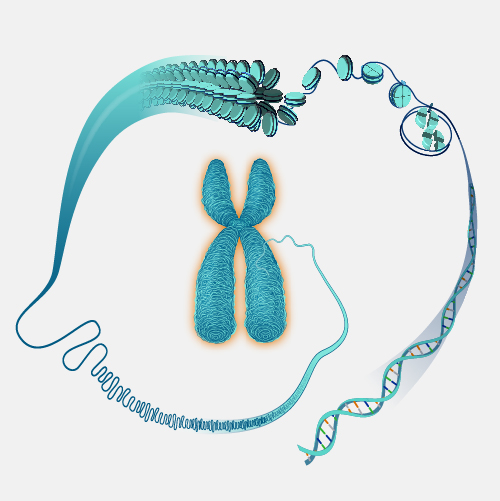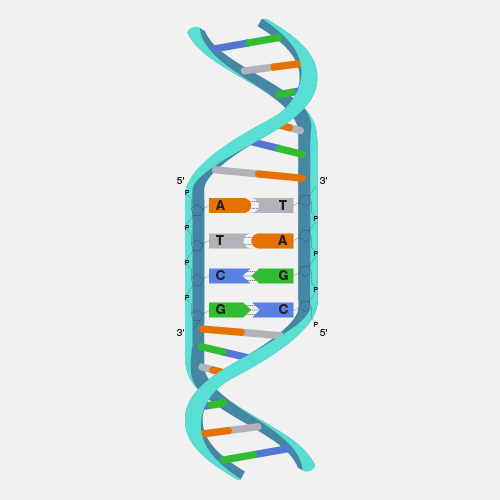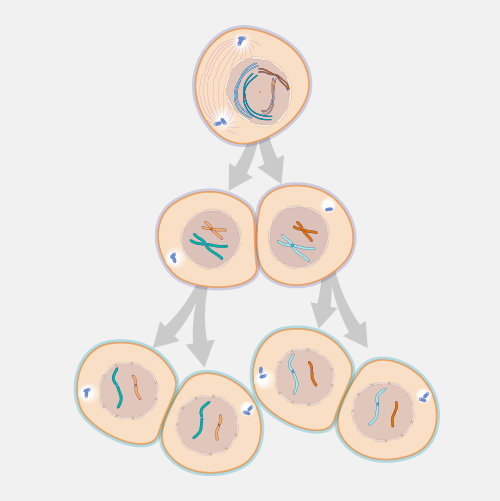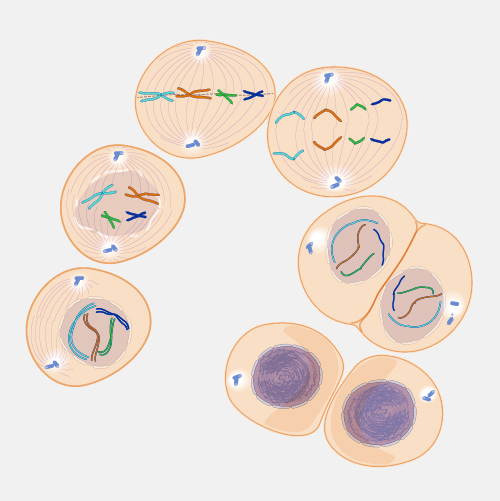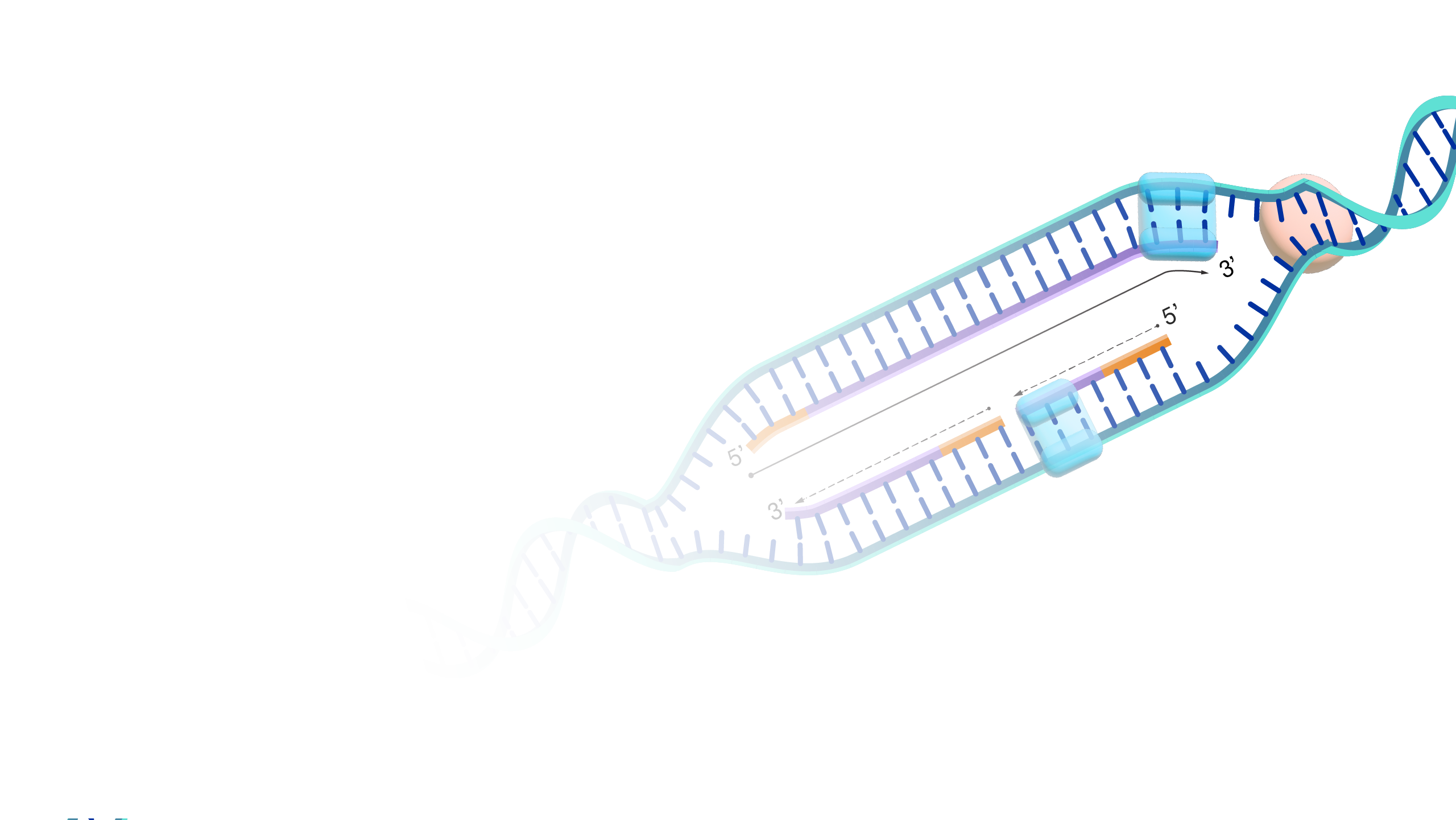
DNA Replication
Definition
DNA replication is the process by which the genome’s DNA is copied in cells. Before a cell divides, it must first copy (or replicate) its entire genome so that each resulting daughter cell ends up with its own complete genome.
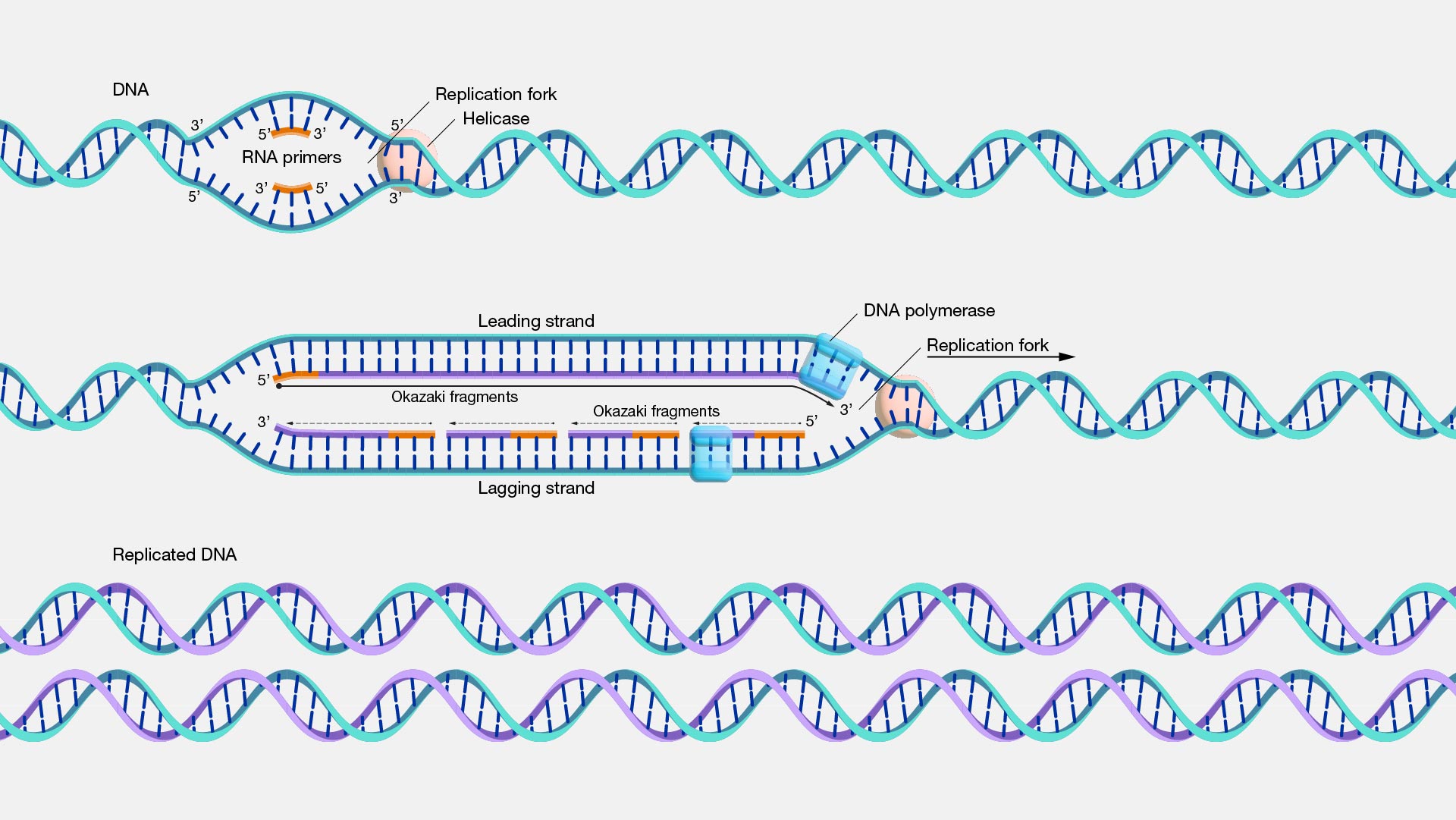
Narration
DNA replication is probably one of the most amazing tricks that DNA does. If you think about it, each cell contains all of the DNA you need to make the other cells. And we start out from a single cell and we end up with trillions of cells. And during that process of cell division, all of the information in a cell has to be copied, and it has to be copied perfectly. And so DNA is a molecule that can be replicated to make almost perfect copies of itself. Which is all the more amazing considering that there are almost three billion base pairs of DNA to be copied. And replication uses DNA polymerases which are molecules specifically dedicated to just copying DNA. Replicating all of the DNA in a single human cell takes several hours of just pure copying time. At the end of this process, once the DNA is all replicated, the cell actually has twice the amount of DNA that it needs, and the cell can then divide and parcel this DNA into the daughter cell, so that the daughter cell and the parental cell in many case are absolutely genetically identical.


